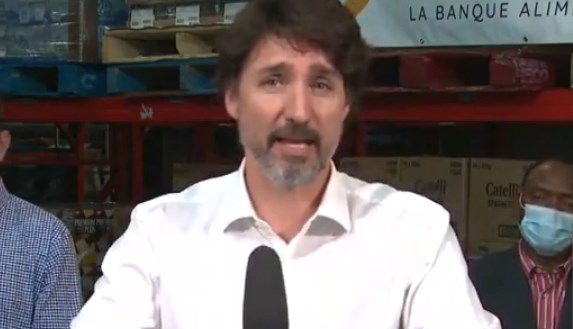Ottawa has suspended its extradition treaty - effective immediately - with Hong Kong after China this week passed a new, controversial National Security Law that severely eroded the city’s autonomy.
Canadian Prime Minister Justin Trudeau made the announcement this morning at his daily COVID news conference. Trudeau said Canada will also suspend immediately its exports of sensitive goods (like military items) to Hong Kong.
Trudeau said Ottawa’s moves reflect its concerns over the National Security Law, which circumvents the existing “One Country, Two Systems” arrangement by allowing Chinese agencies to set up in Hong Kong and enforce - by arrest and detention if judged necessary - what Beijing deems as efforts to challenge Communist rule.
“After studying the legislation and its impact, Canada will treat exports of sensitive goods to Hong Kong in the same way it treats those destined for mainland China,” Trudeau said. “… Canada is a firm believer in the ‘One Country, Two Systems’ frame work. We will continue to support the many connections between Canada and Hong Kong while also standing up for its people.”
Ottawa is also “looking at additional measures around immigration” in response to what’s happening in Hong Kong. It is unclear what immigration measures the federal government could be looking at.
Some Canadian critics have called for the enactment of the Canadian equivalent of the Magnitsky Act, which would punish those Ottawa deems to have violated human rights by - among other measures - freezing assets in Canada and forbidding entry into the country.
As well, Canada has said it welcomes all of the 300,000 Hong Kong residents holding Canadian passports to return to Canada. Great Britain has said it will offer a path to citizenship for those in Hong Kong born before 1997 (as well as their dependents).
In terms of a coordinated effort to respond to Beijing’s moves in Hong Kong, Trudeau offered Canada’s role in the international response to Russia after the latter annexed Crimea from the Ukraine in 2014. Russia was forced out of the G8 and faced a number of economic sanctions at that time, Trudeau said.
“We are extremely concerned about the situation in Hong Kong,” Trudeau said when asked about Canada’s lack of stronger criticism of Beijing in light of the Hong Kong security law. “We will continue to look at responses, including working with our allies - including our Five Eyes allies, who have made very strong statements in regards to the Chinese government’s decision to move forward [with Hong Kong’s National Security Law].”



